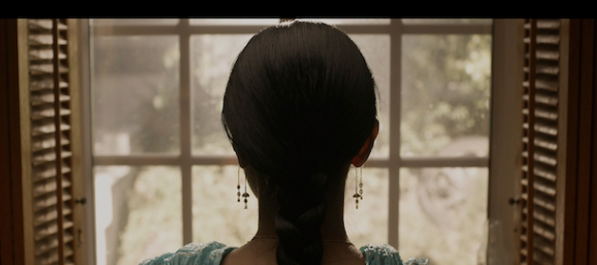Keep Your Short Short—And Other Lessons I Learned During Project Involve

We’re proud that three of the short films created during Project Involve, Film Independent’s Artist Development program for diverse and emerging filmmakers, were among the 25 selected for the 2014 PBS Online Film Festival: My Dear Americans, directed by Arpita Kumar; 7 Day Gig, directed by Kate Marks; and You’re Dead to Me, directed by Wu Tsan. We asked Kumar to write about her experience making her short during Project Involve and what she learned about the form. Here’s what she wrote:
As a form, the short narrative film is audacious. It does not bow down to a feature because of its brevity. Its succinctness is its power. Even though several short filmmakers have defied and broken almost all the “rules” of short filmmaking to create exquisite cinematic gems, understanding some of the conventions of the form can be invaluable. As I embarked on writing and directing the short film, My Dear Americans, during my time as a Project Involve Fellow, I found the four guidelines proved to be key in informing my choices:
Keep your short short.
Focus on creating compelling small moments–one or two quick beats. For example, in My Dear Americans, I developed a strong inciting incident (an immigrant couple’s home is defaced with graffiti by bigots) that raised the stakes and triggered my protagonist, Tejpreet, instantly into action. With the conflict heightened, a stronger moment of resolution eventually followed at the end of the story, which revealed how she had transformed. The two moments unfolded within half an hour in the world of the narrative (or four minutes in real time)—a time frame the short film form can support. I avoided dialogue between these two crucial moments, letting the actors’ gestures and shot design enhance the conflict between Tejpreet and her husband, Baldev. It took me a few attempts at short filmmaking and several rounds of the festival circuit to realize how the short film collapses if burdened with a story that unfolds over days.
Your character’s transformation doesn’t have to be enormous.
Your protagonist’s character arc or transformation need not be a radical metamorphosis but can simply be a shift in point-of-view. In the case of My Dear Americans, the change in Tejpreet is not a complete and total acceptance of the United States. Rather, it is a shift from dismissing her new home to bracing herself to face its challenges. It’s a small leap but a plausible one considering the time frame within which the shift occurs.
Keep the number of secondary characters limited.
If the short film form hinges on a small shift in the protagonist within a narrow period of time, then there is no time or space for an ensemble cast. Yes, there can be conflict between two characters but there is absolutely no leeway for subplots or tertiary storylines. In My Dear Americans, Tejpreet is in conflict with Baldev over their move to the U.S. The inciting incident heightens the conflict and the resolution reveals the shift in Tejpreet’s perspective. This shift is visual and unfolds through Tejpreet’s actions and empowers Baldev to see her point of view.
Keep your end credits short. One minute of credits at the end of a short film can be a drag. Film Festivals really appreciate it if there are no opening credits and the closing credits end within 30 seconds.
As I was writing these guidelines, a host of examples sprang to my mind of short films that defy every guideline and yet are stellar short films. Clearly, there are no clear-cut rules. Make the film you set out to make—true to your vision and voice.
Arpita Kumar / guest blogger